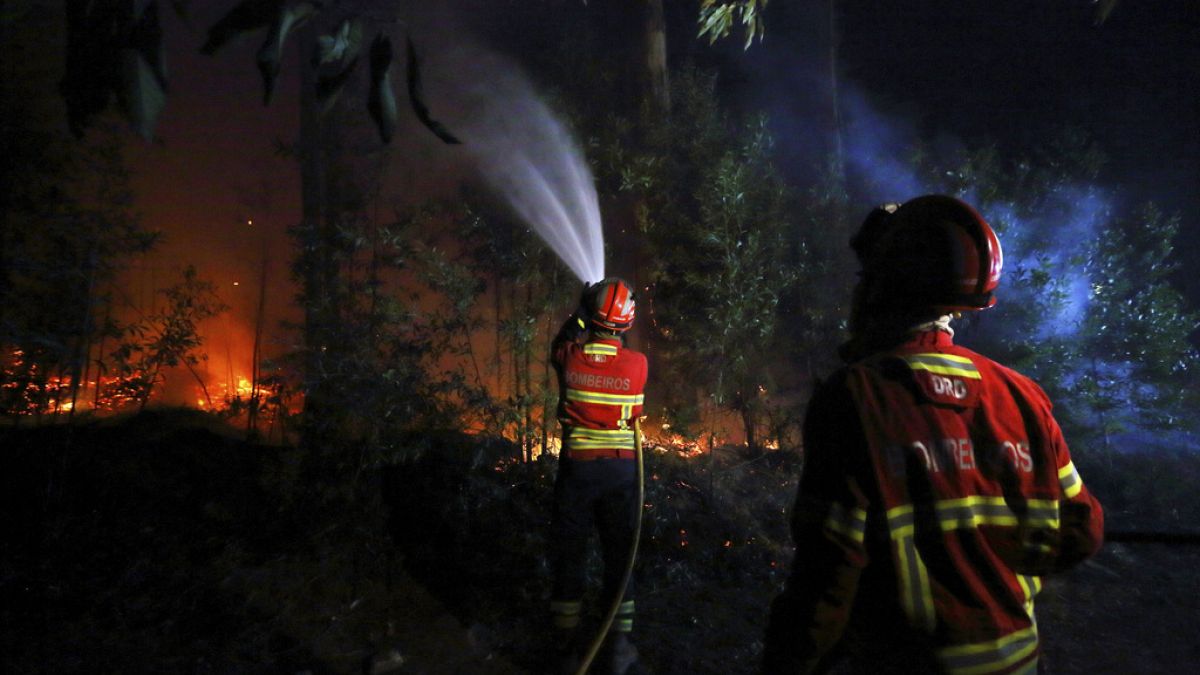

In recent days, a blend of impressive conservation successes and environmental challenges have unfolded across the globe, reminding us of both the resilience of nature and the critical imperative for human stewardship. This collection of developments spans continents, illustrating ongoing efforts to address climate impacts and the embrace of positive environmental change.
In Portugal, the dedication of firefighting teams has been highlighted as they tackle challenging wildfire situations. The efforts involved the deployment of 2,500 firefighters across various wildfires, leading to the evacuation of four villages for the safety of the inhabitants. This demonstrates Portugal’s proactive approach to managing wildfire risks during the summer’s dry periods, underscoring the importance of preparedness and community safety in times of natural crisis. A suspect has been arrested in connection with several of these fires, shedding light on human-induced catalysts that exacerbate such natural threats. This incident serves as a clarion call for increased vigilance and strategic interventions aimed at safeguarding both human and ecological communities.
Meanwhile, across the Mediterranean region, newly released rankings have shed light on Europe’s varied water quality, spotlighting both its pristine and less safe bathing spots. While the Mediterranean has emerged as a preferred region owing to its clean waters, the findings have also pointed out the unexpected clean spots along the Black Sea and the picturesque Alp regions. This variation in water quality emphasizes the ongoing need for water conservation efforts, reflective local policies, and sustainable tourism practices that ensure the preservation of these vital natural resources for future generations.
Amidst the dialogue around water quality, the broader challenge of plastic pollution remains a pressing concern. The global consumption of plastics has reached unprecedented levels, prompting scientists and environmental institutions to advocate for a holistic approach that extends beyond recycling. With plastics permeating the environment, urgent calls for reduction in use, alongside innovative alternatives, are gaining traction. By fostering habits that minimize plastic usage at the source, societies can better manage this ubiquitous issue, ensuring cleaner ecosystems and healthier living conditions for humans and wildlife alike.
In Asia, the impacts of climate change have manifested sharply with record-breaking temperatures putting pressure on human health and infrastructure. Japan and South Korea have experienced exceptionally high temperatures, with South Korea enduring an unusual consistency of ‘tropical nights’ throughout the month. Authorities in these nations have swiftly advised citizens to take precautions against heat-related ailments, highlighting the need for adaptive measures to safeguard public health amid changing climatic patterns.
Amidst these challenges, an inspiring success has been observed on the conservation front in California. The sighting of adult winter-run Chinook salmon in the McCloud River marks an ecologically significant event, not seen in almost a century. This achievement, captured on video by the state’s department of fish and wildlife, stands as a testament to the power of dedicated conservation efforts and the resilience of species when given the opportunity to thrive. Such milestones not only bless ecosystems with greater biodiversity but also inspire continued dedication to restoration initiatives that support native species around the planet.
These varied stories serve as a poignant reflection of the global efforts to confront environmental adversities while celebrating nature’s tenacity and beauty. With concerted actions and thoughtful strategies, the path for sustainable futures is clearer, ensuring that ecological harmony and human well-being progress hand-in-hand.
Source: {link}
